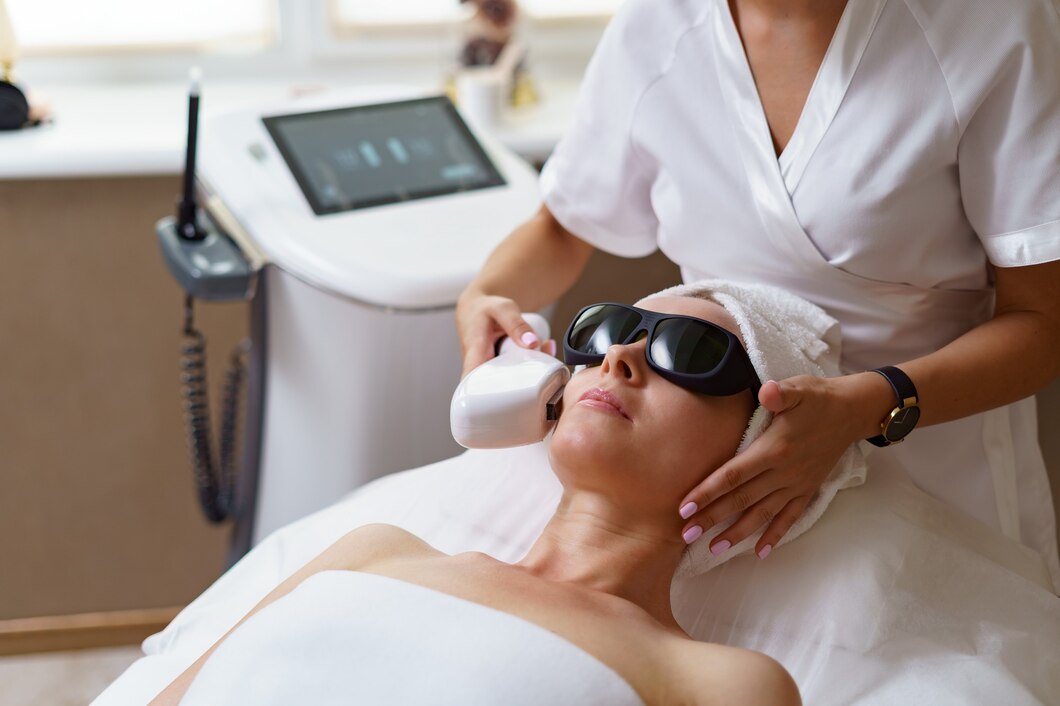As women become increasingly invested in their skincare routines, the popularity of advanced skin treatments such as laser skin resurfacing and chemical peels continues to rise. Both methods offer effective solutions for skin concerns like aging, acne scars, and pigmentation, but safety and suitability vary between the two. Here are 15 things South African women should know about these treatments to help decide which one is safer for their skin.
1. What is Laser Skin Resurfacing?
Laser skin resurfacing uses focused beams of light to remove damaged skin layer by layer. It stimulates collagen production, improving skin texture and tone, and can address concerns like wrinkles, fine lines, and sun damage.
2. What are Chemical Peels?
Chemical peels involve applying a chemical solution to the skin, which causes the outer layers to peel away. This treatment improves skin appearance by removing dead skin cells, reducing fine lines, acne scars, and discoloration.
3. Types of Treatments
There are different types of laser treatments, such as ablative (removing the outer layer) and non-ablative (targeting deeper layers without damaging the surface). Chemical peels also vary, with superficial peels for minor issues and deep peels for more significant concerns.
4. Efficacy and Results
Both treatments can yield significant results, but laser resurfacing often provides more dramatic outcomes, particularly for deep wrinkles and severe skin texture issues. Chemical peels may require multiple sessions to achieve similar results.
5. Recovery Time
Laser skin resurfacing typically involves a longer recovery time, often requiring several days to a few weeks for the skin to heal fully. Chemical peels generally have a shorter downtime, especially with superficial peels, allowing patients to return to normal activities sooner.
6. Pain and Discomfort
Patients may experience discomfort during both procedures. Laser resurfacing can be more painful, often requiring topical anesthesia, while chemical peels can cause stinging or burning sensations, typically subsiding quickly.
7. Skin Type Considerations
Laser skin resurfacing can be suitable for various skin types, but individuals with darker skin tones may face a higher risk of hyperpigmentation. Chemical peels can also be customized for different skin types, making them versatile.
8. Potential Risks
Both procedures come with risks. Laser resurfacing may cause redness, swelling, and scarring if not performed correctly. Chemical peels can lead to irritation, infection, or changes in skin color, especially for deeper peels.
9. Consultation is Key
Before deciding on either treatment, it’s crucial to consult a qualified dermatologist or skincare professional. They can evaluate your skin type, concerns, and medical history to recommend the most suitable and safe option.
10. Maintenance Requirements
Results from both treatments can vary over time. To maintain effects, patients may need follow-up treatments or a consistent skincare regimen. Chemical peels might require regular sessions to sustain results.
11. Aftercare Necessities
Post-treatment care is essential for both procedures. For laser resurfacing, gentle cleansing, moisturizing, and sun protection are critical for healing. After a chemical peel, keeping the skin hydrated and avoiding sun exposure is vital to prevent complications.
12. Combining Treatments
Many women choose to combine both treatments for enhanced results. Consulting with a skincare professional can help create a tailored plan that maximizes the benefits of each method.
13. Cost Factors
The cost of treatments can vary. Laser skin resurfacing is generally more expensive due to the technology involved, while chemical peels are typically more affordable. Understanding the pricing in South Africa can help you budget for your skincare needs.
14. Long-Term Benefits
Laser resurfacing can provide longer-lasting results due to its ability to stimulate collagen production deeply. Chemical peels offer noticeable improvements but may require ongoing maintenance treatments to achieve lasting effects.
15. Lifestyle and Preferences
Ultimately, the choice between laser skin resurfacing and chemical peels may come down to personal preferences, lifestyle, and skin goals. Consideration of downtime, comfort levels, and desired results is essential for making the right decision.
Both laser skin resurfacing and chemical peels offer unique benefits for South African women seeking to improve their skin’s appearance. While both procedures are generally safe when performed by qualified professionals, understanding their differences in recovery, pain, and maintenance is essential for making an informed choice. Consultation with a skincare expert can help determine the safest option tailored to individual skin needs, ensuring a glowing and youthful complexion.








